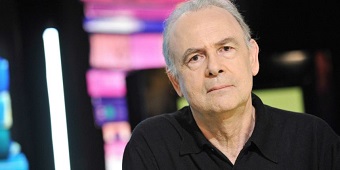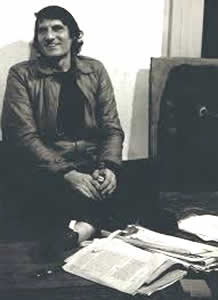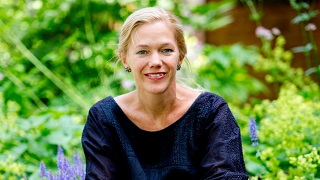De Franse schrijver Patrick Modiano werd geboren in Boulogne-Billancourt op 30 juli 1945. Zie ook alle tags voor Patrick Mondiano op dit blog.
Uit: De horizon (Vertaald door Maarten Elzinga)
“Achter de bekende gebeurtenissen en de vertrouwde gezichten voelde hij alles wat tot donkere materie was geworden: kortstondige ontmoetingen, gemiste afspraken, verloren brieven, de vergeten voornamen en telefoonnummers in een oude agenda, en al die mensen die je ooit bent tegengekomen zonder het zelfs maar te beseffen. Net als in de astronomie was deze donkere materie omvangrijker dan het zichtbare deel van je leven. Ze was oneindig. En in zijn boekje inventariseerde Bosmans de paar zwakke flonkeringen op de bodem van die duisternis. Hun schijnsel was zo zwak dat hij zijn ogen sloot en zich concentreerde, op zoek naar een veelzeggend detail waarmee hij het geheel zou kunnen reconstrueren, maar er was geen geheel, alleen fragmenten, deeltjes, sterrenstof.”
(…)
Hij was aan het begin van de middag op weg gegaan vanuit Prenzlauer Berg, met een plattegrond van Berlijn in zijn jaszak. Hij had zijn route met een rode pen gemarkeerd. Af en toe verdwaalde hij. In de Prenzlauer Allee had hij bedacht dat hij een straat naar links zou kunnen volgen en zo een stuk afsnijden. Hij was uitgekomen op een bebost terrein dat bezaaid was met grafstenen. In de centrale laan van dit boomrijke kerkhof kwam een meisje op de fiets voorbij, met een kind op de bagagedrager. Langs de Karl-Marx-Allee voelde hij zich niet echt verloren, ook al was die straat veel te breed en zagen de betonnen gebouwen eruit als gigantische kazernes. Deze stad is even oud als ik. Ook ik heb de afgelopen tientallen jaren geprobeerd kaarsrechte avenues aan te leggen, straten die loodrecht op elkaar staan, rijen strakke façaden en een dergelijk bewegwijzering om zo de ellende en de chaos waar we vandaan komen, de verkeerde ouders en de dwalingen van onze jeugd te verbergen. En toch beland ik zo nu en dan op een braakliggend terrein dat me iemands afgewezigheid laat voelen, of ik stuit op een rij gebouwen waarvan de gevels de wonden van de oorlog vertonen, als een schuldgevoel. Hij hoefde niet meer op de plattegrond te kijken. Hij liep gewoon rechtdoor, stak de spoorbrug over en daarna een andere brug over de Spree. Misschien was het een omweg, maar dat deed er niets toe.”

Patrick Modiano (Boulogne-Billancourt, 30 juli 1945)
Lees verder “Patrick Modiano, Emily Brontë, Cherie Priest, Pauline van der Lans, Salvador Novo”


